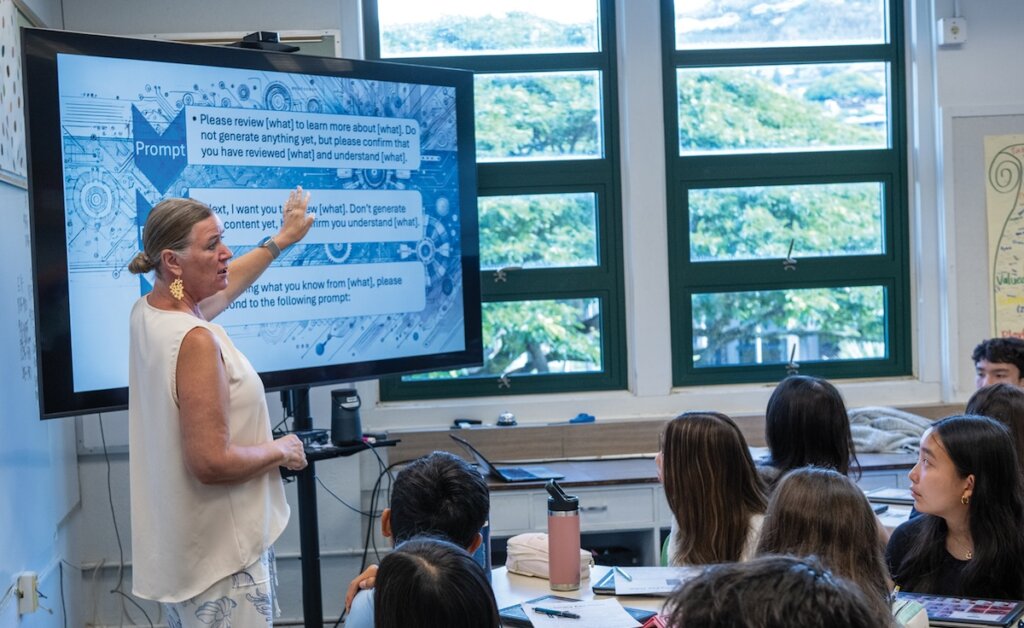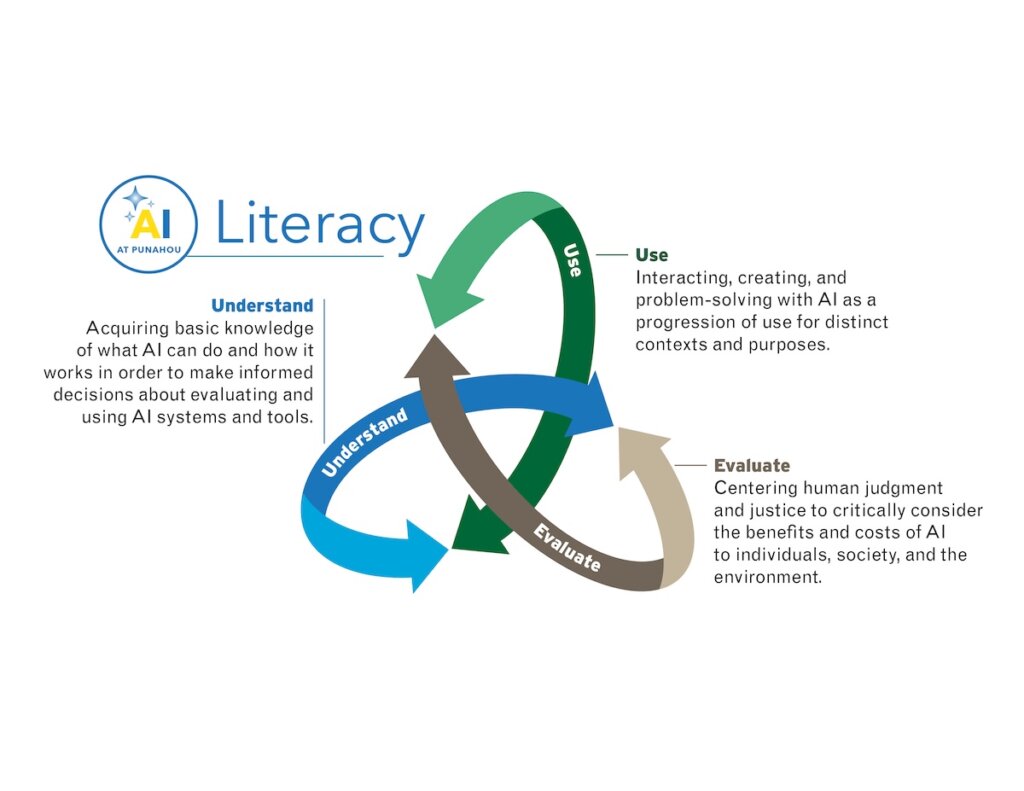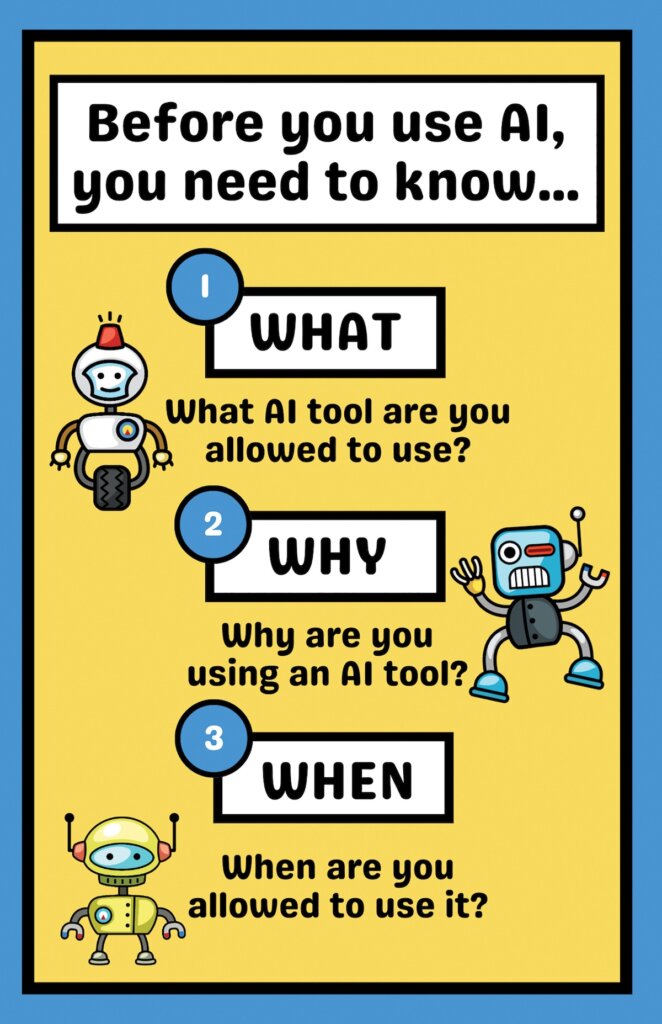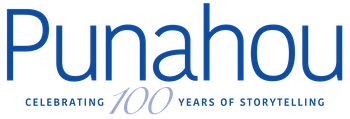

The Power of Inquiry

Grade 8 students are exploring the fundamentals of effective AI prompting. Nuanced discussions and visual aids, like the poster above, provide clear and age-appropriate guidance on when and how to use AI in academic settings.


By Noelle Fujii-Oride
Punahou’s Emerging Technologies Specialist Jennifer Roble is on a mission to help young minds harness the power of artificial intelligence in positive and healthy ways. She’s already making inroads, guiding students to think critically about a wide range of issues, from the impact of AI in the real world to questions of ethics surrounding its use.
“The more we can talk with our students or our children, the more opportunities we have to make it something that they’re able to think deeply about,” she says. The availability of AI is changing how students learn. If students want help writing a history paper or help breaking down the steps of an algebra problem, they can ask ChatGPT. No other technology has had such a game-changing effect on education – and the world – since the widespread adoption of the Internet.
Roble, who earned her doctorate in Educational Leadership with an emphasis on Innovation in Educational Technology from Lamar University, launched an AI literacy curriculum for Case Middle School during the 2024 – 2025 school year. The content included three sessions on what AI is, ethical use of AI and AI vocabulary, with lessons tailored toward the different grade levels.
“The goal is to just add to what we were already doing and being purposeful about developing lessons that build on each other to ensure all students are learning the necessary skills for AI literacy,” Roble says.
The journey began with sixth graders, who received introductory-level classes. They learned to explain how advanced AI systems function while considering the ethical implications of using them.
Meanwhile, seventh graders evaluated how AI systems impact people and society and leveraged critical thinking skills to determine how AI can be used in positive ways. For their part, eighth graders learned how they can be safe while using frontier AI models. ChatGPT and Gemini require that users be at least 13 years old to use their platforms. Students learned how to change the settings so that their inputs don’t become part of the large language model’s training data.
“The more we can talk with our students or our children, the more opportunities we have to make it something that they’re able to think deeply about.”
– Jennifer Roble, Emerging Technologies Specialist
With AI now integrated into devices like iPhones and iPads and built into software, students also discussed which AI features are appropriate to use in their schoolwork. “We’re just seeing it more and more within the different software, so we have to constantly be looking forward at the apps our students are using, how those apps are changing and what does that mean in terms of how we teach and learn with those apps,” Roble says.
One of Roble’s highlights from this past school year was observing the conversations CMS students had around AI ethics. One ethical dilemma they discussed was whether Punahou has any responsibility to address AI’s high energy and water use.
These conversations encouraged students to reflect on the future. Some suggested that teachers should prohibit AI use when less resource-intensive tools are available. Others said that because Punahou already has sustainable initiatives in place, such as net-zero projects, the School is already doing its fair share. Still others proposed creating educational videos to encourage other schools to reduce their energy consumption when using AI.
“When given the opportunity to brainstorm solutions to these big problems, they had lots of ideas and answers,” Roble says.
Looking ahead, the AI literacy program will continue to build on the strong foundation that already exists in Case Middle School and in K – 5.
This year, students in grades kindergarten through fifth grade will explore AI literacy coursework, with each grade’s curriculum building on the previous one. Early lessons will focus on computational thinking and recognizing data patterns, laying the groundwork for later discussions on ethics and the relationship between humans and technology.
Roble says her passion for AI literacy coursework stems in part from the sheer power of this technology and the realization that some young students were already using ChatGPT at home with their families. “It made me realize that we need to start AI literacy earlier, with more urgency” she says. “I don’t want our students to lack the skills they need to understand these new tools.”
Main Article: Prompted: Intentional AI Literacy for a New Frontier
